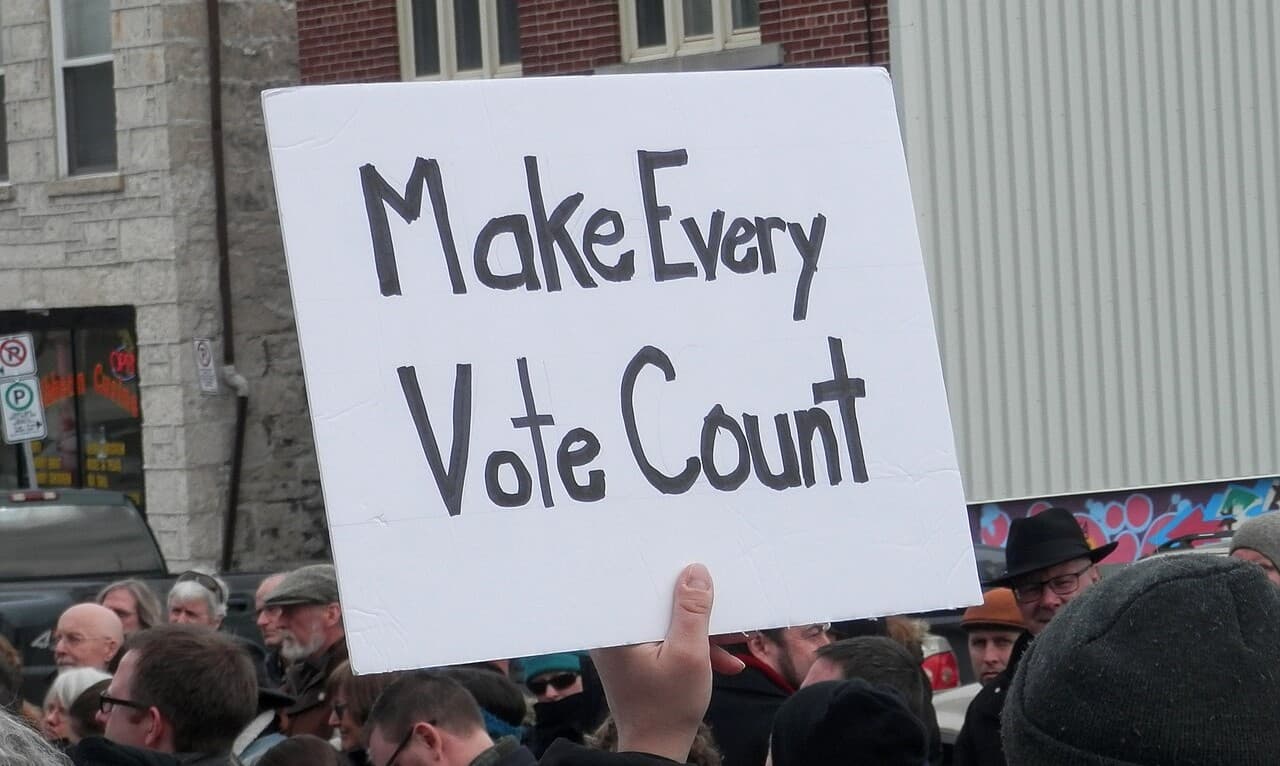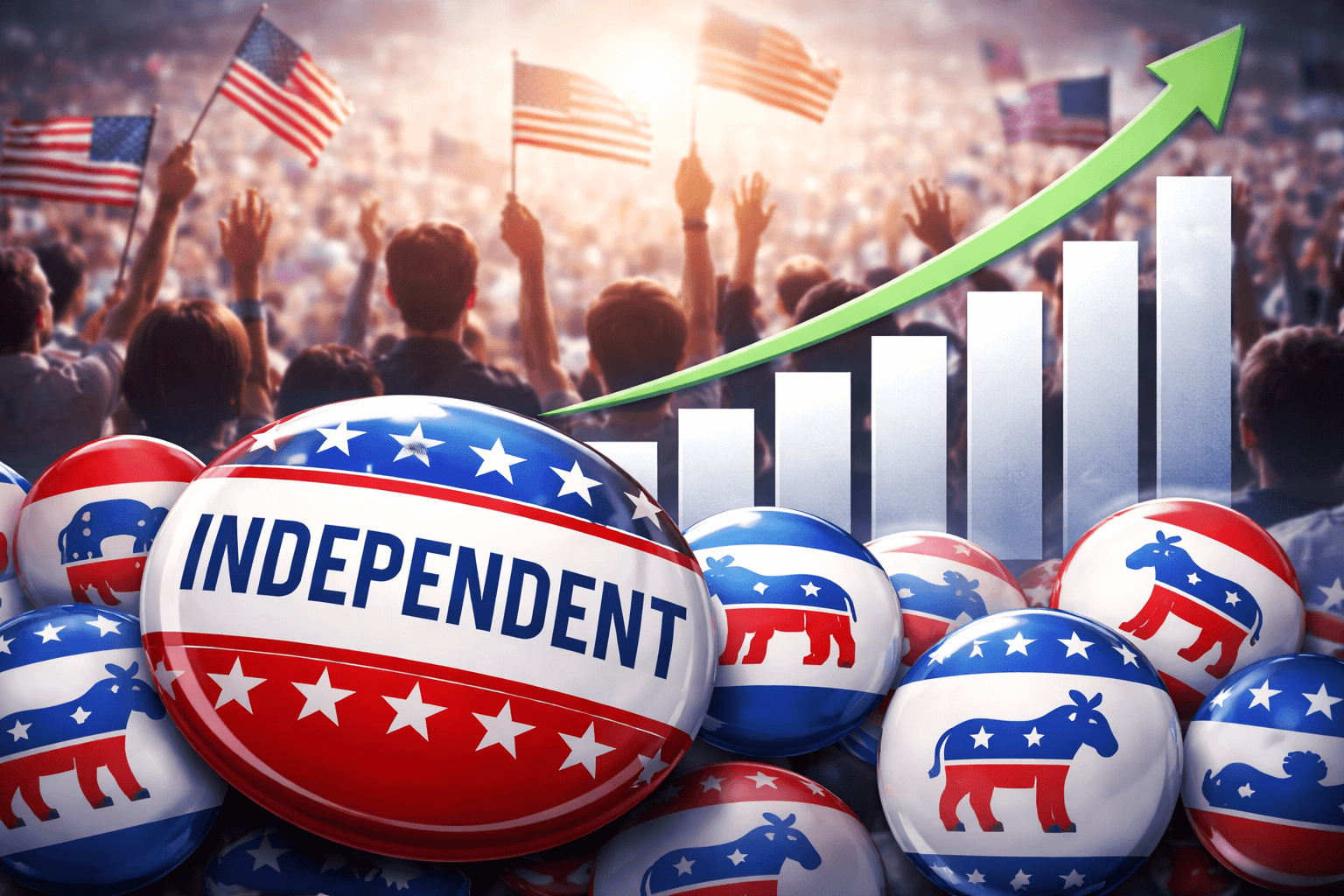Report: 6-in-10 New Voters Register Unaffiliated in States that Suppress Independent Voters

Photo Credit: Ryan Hodnett / Wikimedia Commons
Mounting research continues to show the real truth behind independent voter suppression in several states across the US. More groups are releasing studies on the impact of closed and semi-closed partisan primaries as the number of registered independent voters continues to break record highs.
The latest report, titled "Are Independent Voters Disenfranchised by Primary Election Rules?," comes from A-Mark Foundation. According to its website, A-Mark is a 501(c)(3) non-profit that supplies "open-minded, curious citizens with the facts they need in order to make informed decisions."
The group's report highlights the disparities in primary election systems in each state, along with the varying complexities of primary election rules that can shut out independent voters completely or make the process so confusing that it creates a cumbersome burden on these voters' rights.
The report came to the same conclusion as other published analyses of primary election systems in the US, such as Unite America's February report "Not Invited to the Party Primary: Independent Voters and the Problem with Closed Primaries" and IVN's reporting that spans more than a decade.
"Primary elections are increasingly functioning as general elections, creating barriers for unaffiliated voters," said A-Mark Foundation CEO Rob Eshman. "Our report highlights restrictions on the ability of independents to participate in choosing their elected officials."
It's easy to see how important primary elections are when looking at the abysmal state of electoral competition in the US, which the report found went from 33% in US House elections in the 1970s to 8% in 2022. In other words, A-Mark determined that primary elections are the most critical stage of the elections process in 92% of congressional races.
"Yet, in half of U.S. states, unaffiliated voters were locked out of these elections, effectively denying them the opportunity to vote on who would represent them," the report states.
This evaluation goes beyond strictly closed partisan primaries and looks at states with semi-closed primaries or otherwise needlessly complex rules. A-Mark identified 28 states plus the District of Columbia that bar independent participation in at least one party's state or presidential primaries.
Further, the report looks at state legislative elections as well.
"Over the past 50 years, the number of state legislative races across the U.S. with only one major party candidate climbed from around 20% in the 1970s to more than 40% in 2022," it states. This does not even get into how many state legislative districts are actually competitive.
In Idaho, for example, over half (54%) of state House races had only one major party candidate in the general election in 2022. IVN has also looked at New Mexico, which consistently has election cycles in which half of state House races go uncontested each election cycle.
Idaho uses semi-closed primaries while New Mexico uses closed primaries -- meaning the rights of independent voters and voters outside the dominant party to have a meaningful say in who represents them is significantly burdened.
It is especially alarming when one looks at voter registration trends. A-Mark's report underscored Gallup polling that consistently finds independent voter ID between 40% and 50% of US voters, but also noted that in states that register voters by party, 60% of new voters are registering unaffiliated.
In several states, like Oregon and Nevada, independent voters outnumber members of at least one of the major parties (in Nevada it's both), and yet these states treat these voters as second-class citizens.
The registration trend away from the major political parties is drawing more attention to the way primary elections are conducted because in most cases these elections decide electoral outcomes.
The only way to foster a political landscape of greater accountability and representation is to give non-major party voters equal voting rights. As the electorate shifts to being more independent, elections should shift to be more nonpartisan.
 Shawn Griffiths
Shawn Griffiths






